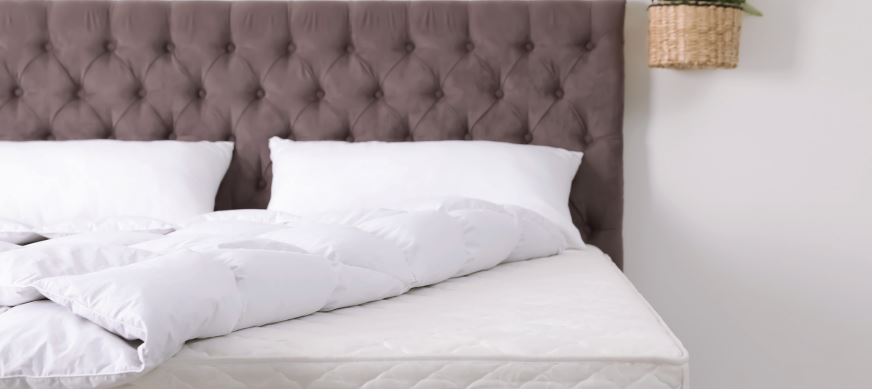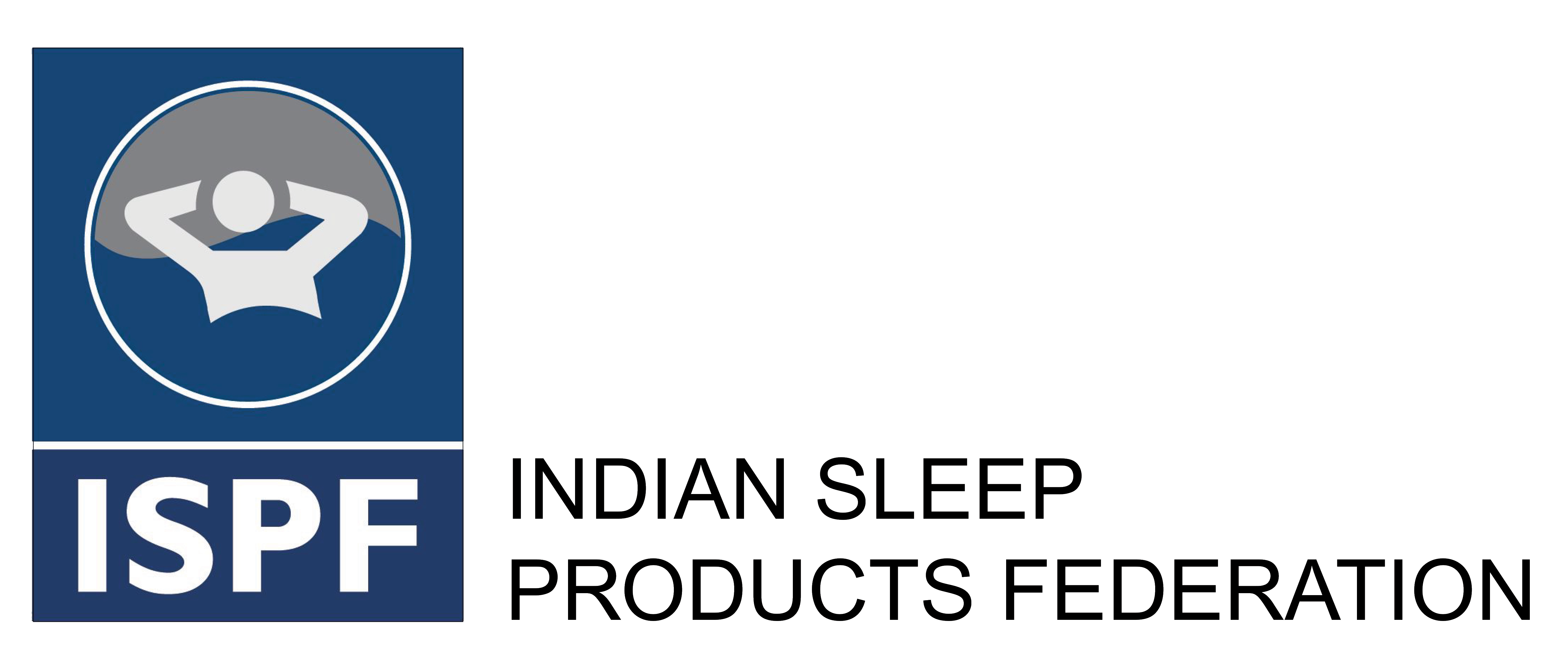The unconventional work approach of millennials has led to the growth of start-ups in India. Millennials are progressive advocate new ideas and are willing to be a changemaker in the business scenario. Going by Nasscom’s findings, India ranks third globally as a start-up hub with more than 4,200 start-ups creating over 80K jobs. Besides creating employment, start-ups are fresh in their approach and have unique ideas that address the pain points of customers.
In recent years, the Indian mattress industry has witnessed many new brands making their way into the industry. Not only their product ideas but their business approach too, is very different, giving a break from the traditional pattern. Companies like Wakefit, Sleep Company, Flo mattresses, Repose etc. have grabbed everyone’s attention for their new product ideas and distribution models. The Indian mattress industry offers significant scope for new players to enter and thrive. The growing market size, untapped market segments, evolving customer preferences, nationwide reach through the D2C model, increasing disposable income, advanced sleep technology and materials present enough scope for start-ups to venture into this industry. By understanding market trends, identifying gaps, and offering innovative solutions, new entrants are already capitalizing on the growing demand for quality sleep products in India.
Mattress Start-ups and their role in shaping up the Indian mattress industry
In the Indian mattress market which is largely unorganized, new brands have established themselves as a promising alternative to established brands. “Ten years ago, the online mattress market was less than 2 percent, but today about 12 percent of the mattress market is online. Start-ups have contributed well in this regard,” says S Sundaresan, Secretary, of the Indian Sleep Products Federation (ISPF).
While the start-ups started reaching out to customers by leveraging the D2C model, they had plans for launching offline stores. This has improved the sleep experiences for the consumers. D2C mattress start-ups like The Sleep Company, SleepyCat, Flo Mattresses, and Wakefit which gained consumers’ recognition through their websites, apps and online marketplaces are now eyeing the offline route in a big way. Be it the D2C model or the brick-and-mortar model, they will continue snubbing the middlemen and reach the consumers directly through both routes.
Start-ups in the Indian mattress industry have played a significant role in shaping the overall Indian mattress industry, in terms of product innovation, pricing, customer experience etc.
- Product Innovation: Start-ups have introduced innovative mattress designs, materials, and technologies that were previously not widely available in the Indian market. A new range of products like orthopaedic mattresses, memory foam mattresses, hybrid mattresses, and other advanced sleep solutions cater to specific customer needs and preferences, which has improved sleep experiences for consumers.
- Better pricing through D2C approach: By leveraging D2C models, mattress start-ups have been able to offer affordable and good-quality mattresses. With the D2C model, companies could eliminate the middlemen and reduce overhead costs, passing on the benefits to customers. This has created price competition and made better sleep products accessible to a wider range of consumers.
- Consumer-friendly sales strategies: Start-ups have embraced the e-commerce boom in India and made mattresses more accessible through online marketplaces. By offering doorstep delivery, generous trial periods, hassle-free returns, and customer-friendly policies, start-ups have made the purchase process more convenient and customer-centric. This shift has allowed customers to research, compare, and buy mattresses from the comfort of their homes, significantly changing the way mattresses are bought and sold.
- Better Customer Experience: Start-ups have prioritized the overall customer experience by offering personalized services, responsive customer support, and addressing pain points in the buying process. They have focused on simplifying the mattress buying experience by providing detailed product information, educational resources, and transparent pricing. This customer-centric approach has helped build trust and loyalty among consumers.
- Marketing and Branding efforts: Start-ups have brought a fresh approach to marketing and branding in the mattress industry. Through social media platforms, online influencers, and engaging content, they have successfully created brand awareness and garnered a loyal customer base. They have showcased the benefits of their offerings and differentiated themselves from traditional mattress brands, effectively reaching and capturing the attention of the target audience.
- Competition and Innovation: The entry of start-ups has intensified competition in the mattress industry. In response, established brands have also improved their product offerings, customer service, and online presence to stay competitive. This has ultimately resulted in an industry-wide focus on innovation, quality, and customer satisfaction.
Overall, start-ups in the Indian mattress industry have brought about positive disruptions and raised the bar for the entire industry. They have introduced new product concepts, improved affordability and convenience, and elevated the customer experience. Their influence has pushed traditional players to adapt and innovate, thereby, benefiting consumers with a wider range of options and better sleep solutions.

How to start-up in the mattress industry?
Starting a mattress business in India can be a lucrative venture, considering the growing demand for quality sleep products. “One piece of advice for new-age mattress brands is that building a business in the mattress segment requires effort, dedication, and passion. The barrier to entry in this market is very low but the challenge is to differentiate oneself by understanding consumer needs and creating strong moats. The success mantra in this segment is to always listen closely to the customer and streamline business operations to cater to the evolving target audience,” says Ankit Garg, CEO and Co-founder, of Wakefit.co
Like any business, one needs to consider various factors before establishing a start-up in the mattress industry. Start-up owners must conduct a thorough market analysis to understand the current trends, competition, and consumer preferences in the Indian mattress industry. Identifying the target audience and their specific needs will help start-ups develop suitable products.
Working on a Unique Selling Proposition (USP) will allow consumers to differentiate their products from other competitors. Start-ups must offer them unique features, such as orthopaedic support, eco-friendly materials, customizable options, or innovative sleep technologies. Start-ups should aim to provide value for money to attract customers.
Meanwhile, collaborating with the right suppliers and maintaining good business relationships with reliable and reputed mattress suppliers who can provide high-quality materials and components will help the start-up achieve its desired objectives. New companies must ensure that their suppliers adhere to quality control standards and provide timely deliveries.
By understanding market trends, identifying gaps, and offering innovative solutions, new entrants are already capitalizing on the growing demand for quality sleep products in India.
Deciding on the manufacturing process, as in, whether to manufacture the mattresses in-house or outsource production is one of the areas that should get top priority. While In-house manufacturing may require significant initial investment, outsourcing can provide cost advantages to new companies. Start-ups must take cognizance of their business model and determine the best solution.
While starting up in the mattress industry, it is important to leverage an appropriate distribution strategy and it should be efficiently implemented. While online platforms provide a wider reach, physical stores give a ‘touch and feel’ experience to the customers. In the recent past, it has been observed that start-ups had first launched themselves on the online marketplaces while having a prompt and fully operational website and user-friendly apps. And for their customer’s convenience, they offered a 100-day trial policy with easy exchange and return programmes. But eventually, they raised funds to go the offline route to allow their customers to physically experience their mattresses and sleep products.
It is also important to create a strong brand identity and effective marketing strategy which will create awareness and drive sales for the new brand. Start-ups could leverage various social media channels, online advertising or reach out to the consumers through domain-specific influencers to reach the right target audience.
In order to maintain a good image of the brand, new companies must ensure seamless customer service that would facilitate prompt responses to inquiries, smooth order fulfilment, and hassle-free returns or exchanges. If customers feel satisfied with the entire shopping experience, they will look for their next set of sleep requirements from the same brand.
One should definitely not forget the legal aspects of running the business. Start-ups must ensure that the business complies with all legal and regulatory requirements, including tax registrations, business permits, and product quality certifications. Complying with safety and quality standards will build trust with customers.
Once all these areas are covered start-ups must plan for the future. It is important to explore various expansion opportunities, in terms of introducing new product lines, and distribution channels and entering new markets (both domestic and international). New companies cannot afford to be complacent and must innovate continuously to stay ahead of their competitors. While starting a mattress business in India offers opportunities, it is important to carefully analyze the market, understand consumer preferences, and differentiate your products to succeed amidst competition.
Start-ups in the Indian mattress industry have played a significant role in shaping the overall Indian mattress industry, in terms of product innovation, pricing, customer experience etc.
Starting up in the Indian mattress industry: The challenge While the Indian mattress industry offers a lot of scope for growth for new companies, it also offers a huge set of challenges, in terms of analysing the market, understanding consumer preferences and most importantly creating a product that would address consumers’ unaddressed pain point.
There are several challenges that can impact the growth and success of a start-up. The Indian mattress industry is saturated with well-established and renowned brands that have been constantly innovating to float new products in the market. These established players have loyal customer bases and strong brand recognition, making it challenging for start-ups to compete for market share.
Establishing manufacturing facilities or finding reliable suppliers can be a major challenge for start-ups. Establishing strong supplier relationships, sourcing quality materials, and maintaining consistent production can be difficult, especially with limited resources and budget constraints. Additionally, there has been increased focus on creating sustainable sleep products. This means manufacturers have to ensure sustainability right from the initial sourcing stage. This could be expensive, especially for start-ups who would still be working towards establishing themselves in the Indian mattress market.

Building brand awareness and earning consumer trust can be a significant hurdle for start-ups. Shifting the attention of a brand-loyal customer towards a new brand could be the major hurdle for new companies. Meanwhile, operating in a price-sensitive Indian market, and start-ups often face challenges in offering competitive pricing while maintaining quality.
Gaining access to distribution channels and establishing retail partnerships can be a big hurdle for start-ups. It could be quite challenging for new mattress brands to convince retailers and secure shelf space or online visibility.
Logistics and timely delivery of mattresses is another big challenge, especially for start-ups that rely heavily on direct-to-consumer models. Ensuring smooth and efficient delivery across different locations is a complex process and may require careful planning and partnerships with reliable logistics providers. Maintaining consistent quality and obtaining necessary certifications is another big challenge for start-ups and may require additional investments and adherence to strict processes.
And above all educating consumers about the benefits of different mattress types, materials, and sleep technologies can be a challenge for start-ups, requiring extensive marketing efforts and educational content. Additional investment will be required for the training and development of sales personnel who will be the voice of the brand for customers.
Road ahead for start-ups in mattress industry
Despite these challenges, start-ups in the Indian mattress industry have the opportunity to carve out a niche by offering unique products, leveraging e-commerce platforms, focusing on customer experience, and capitalizing on evolving consumer preferences. By addressing these challenges strategically and effectively, start-ups can gradually establish themselves and succeed in the market.
Start-ups must give importance towards educating the customers as they have started realizing the importance of a good sleeping surface but need to know about the feasible options available for them. “Today’s consumer is well aware of the importance of buying a mattress but requires guidance on which mattress to buy as per their sleep patterns,” explains Nirbhay Gupta, CEO of Coirfit Mattress.
Start-ups have been attributed for bringing in innovation to the mattress industry.
Start-ups have been attributed to bringing innovation to the mattress industry. This industry is open to fresh ideas and if new ideas make the mattress buying process easier for customers while keeping the quality intact along with a good price, then we would probably see many more new brands with different USPs in the market. With more players in the mattress market, the mattress industry will become more competitive and organized. With international brands eyeing the Indian market, start-ups have immense potential to grow through collaboration.


